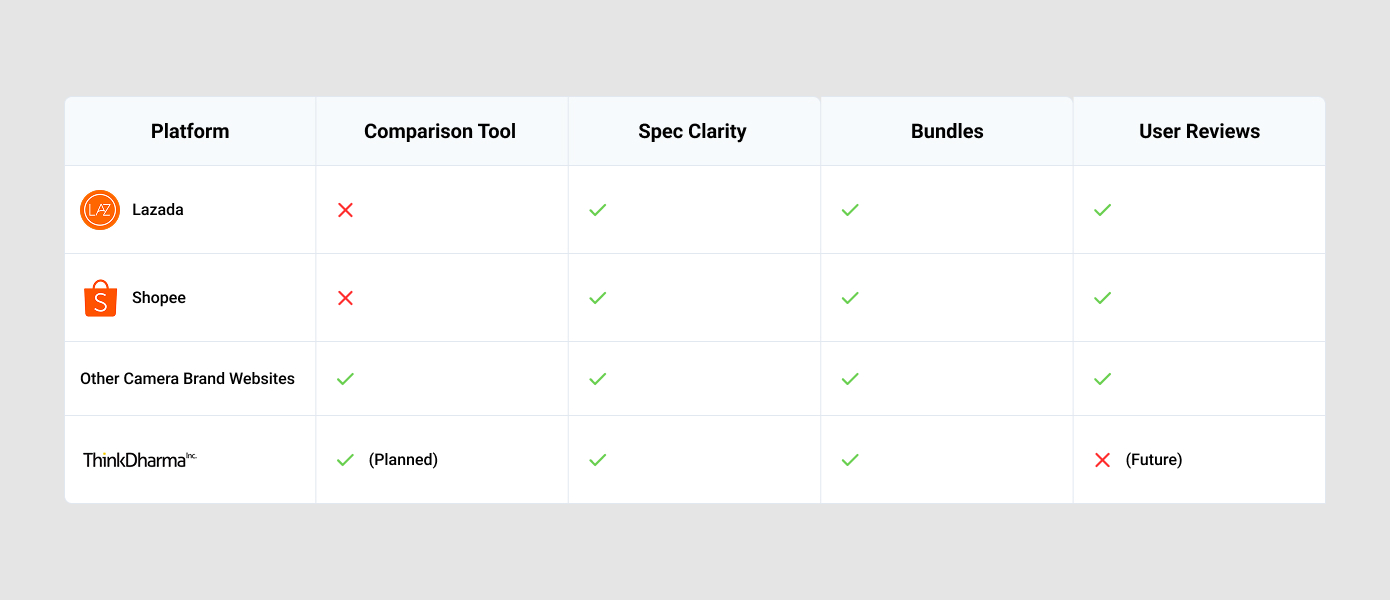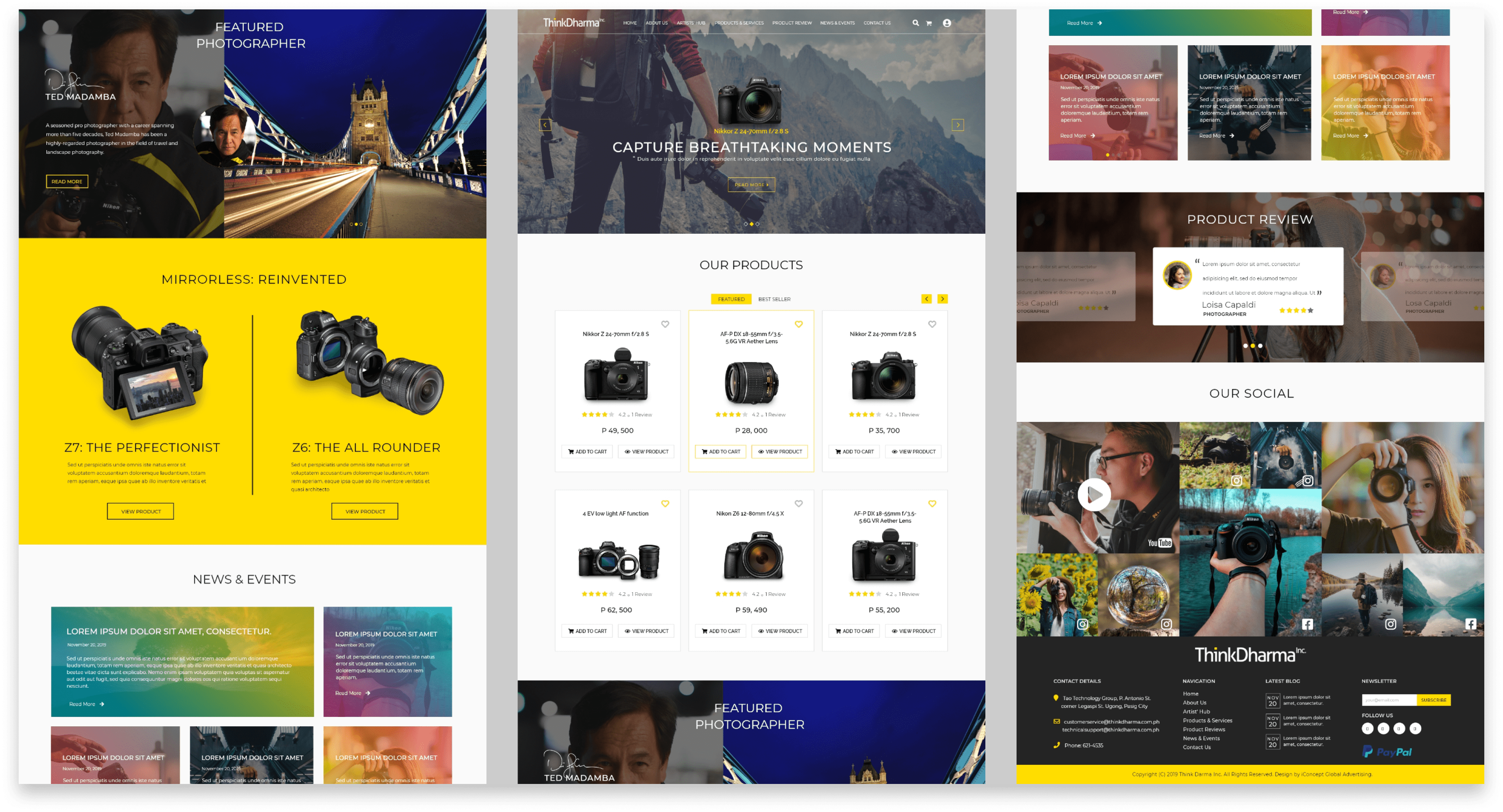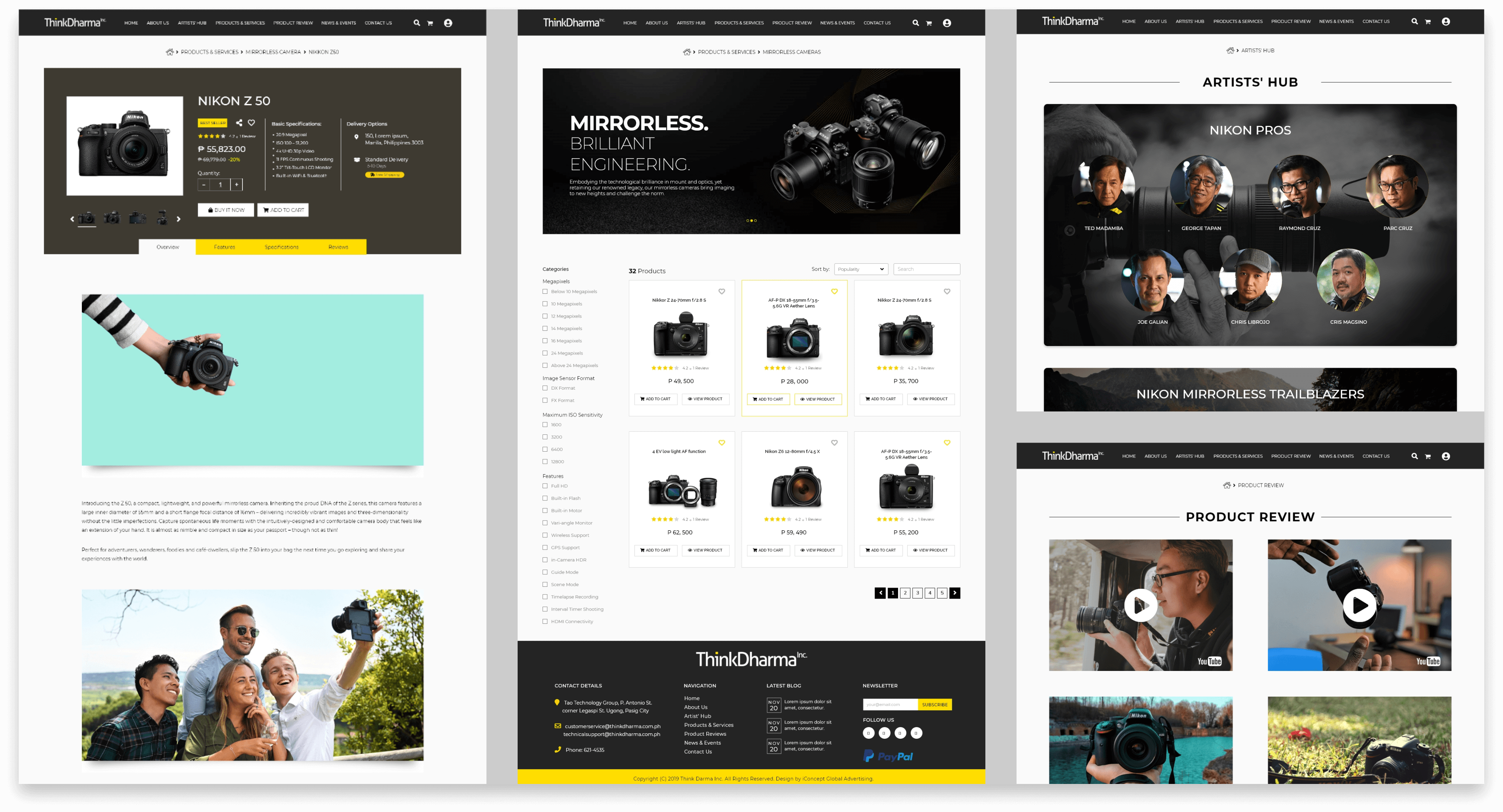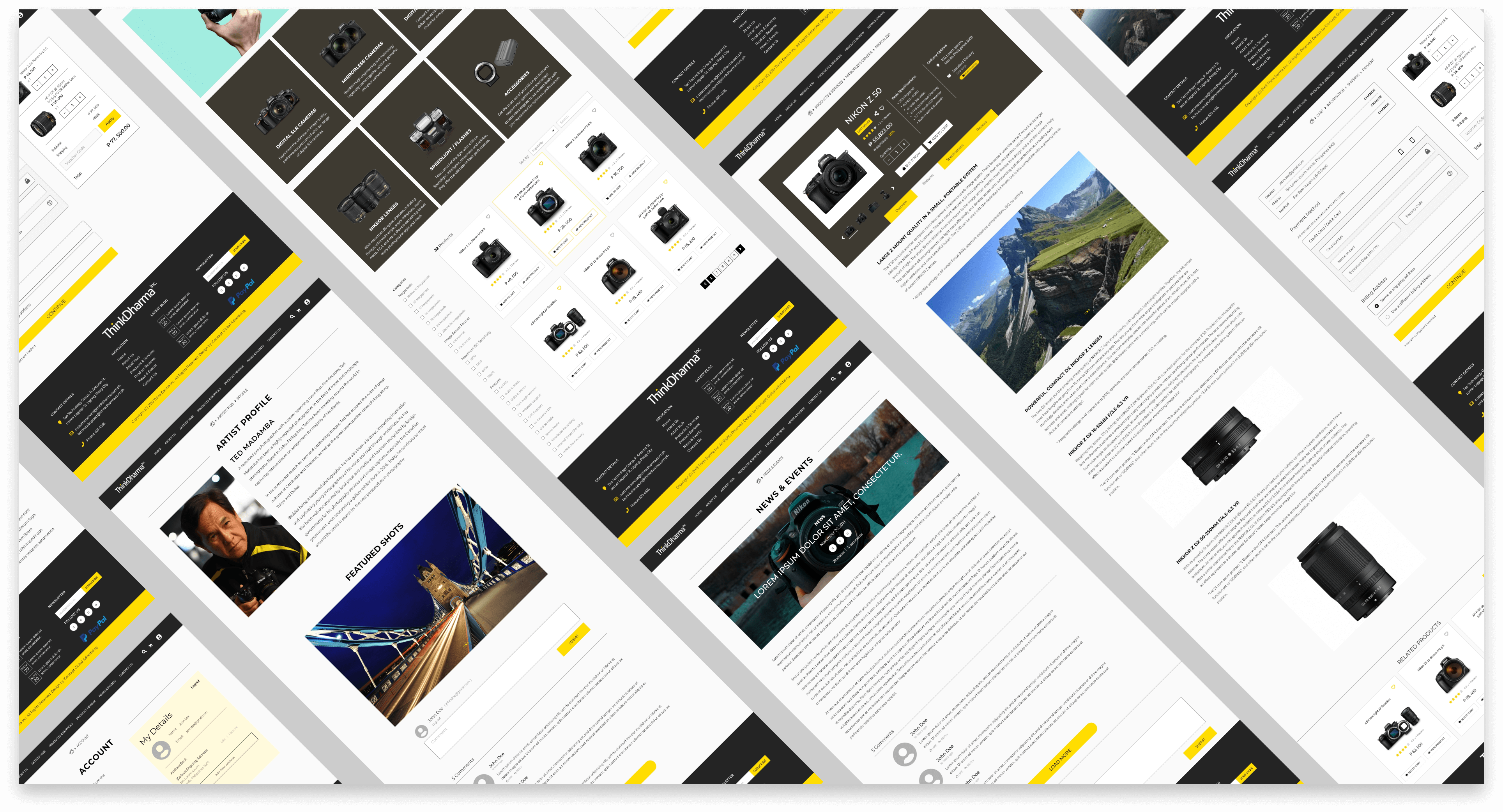― CASE STUDY ―
Thinkdharma Ecommerce
This project focused on designing an e-commerce platform that not only enables transactions but also educates users and builds brand trust. I led the end-to-end UX process, from research and strategy to interface design.
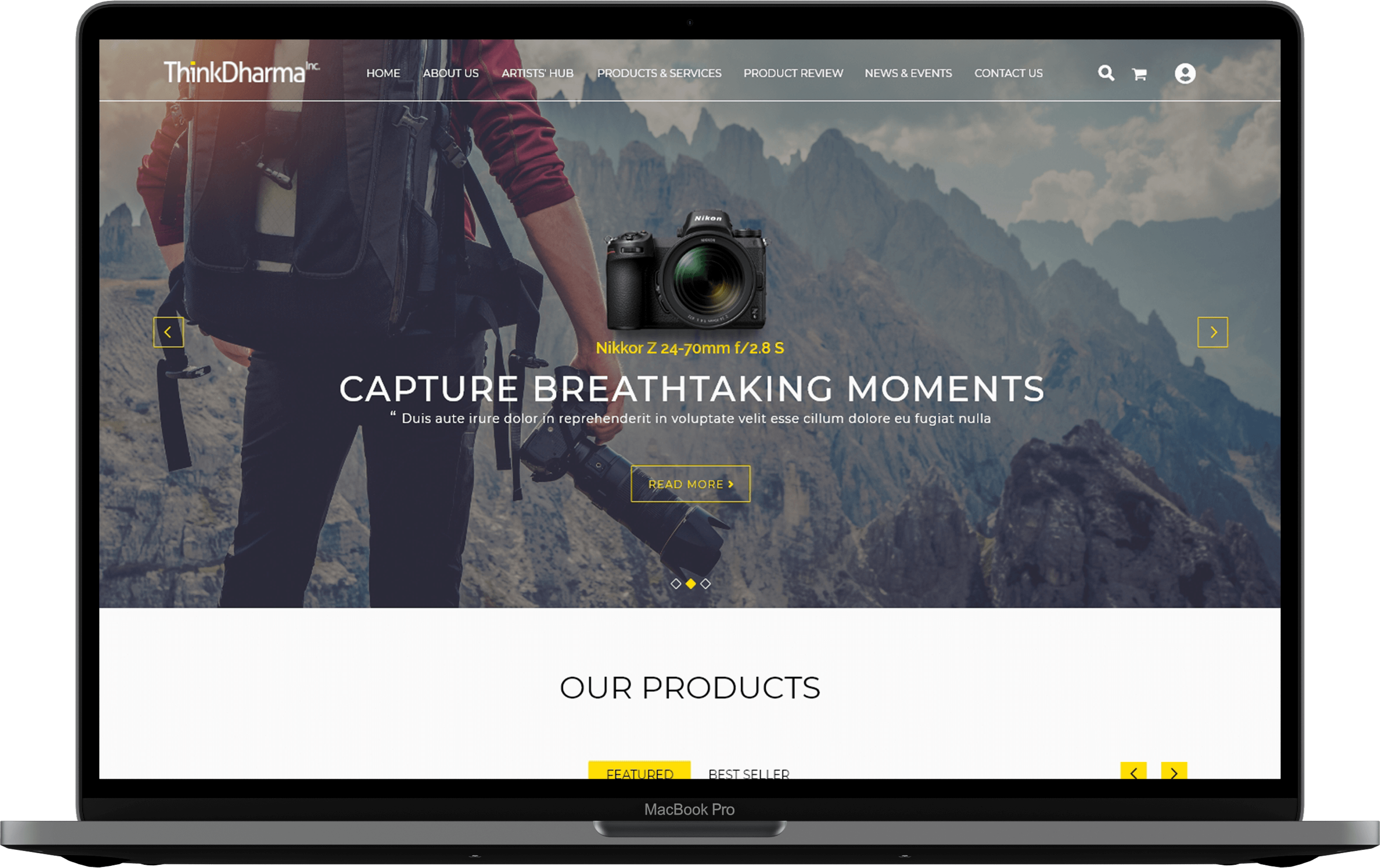
Timeline
1 month
My Role
Sole UI/UX Designer
Tools
Adobe XD, Adobe Photoshop
Problem Statement
Before this project, ThinkDharma had no dedicated online store. Their sales were mostly conducted through Facebook, which made it difficult to scale operations and provide a controlled brand experience. Customers faced several challenges, including a lack of a structured product catalog, limited purchasing options, and difficulty accessing detailed product information. Without a dedicated website, the company also struggled to educate customers on Nikon products and photography essentials, leading to missed engagement and sales opportunities.
Project Goal
The goal was to give ThinkDharma its first real online store—one that made shopping easy, built trust, and reduced reliance on third-party platforms. It also aimed to educate customers, helping them choose the right Nikon gear with confidence.
The Client
Research & Discovery
To ensure the new platform addressed both business objectives and user needs, I started with a thorough research phase. Since this was ThinkDharma’s first e-commerce website, it was critical to lay a strong foundation by understanding the market landscape, competitors, and customer behavior.
Understanding the Market
Online shopping in the Philippines was rapidly growing, with more users relying on mobile devices for browsing and purchasing. Facebook remained a dominant platform for product discovery, especially for consumer electronics. However, the lack of standardized e-commerce experiences on social media meant customers often had to message sellers manually, wait for replies, and complete purchases through informal channels. This friction presented an opportunity to introduce a structured, user-friendly shopping experience.
Competitive Research
I studied camera sellers operating through both local e-commerce platforms (like Lazada and Shopee) and international ones. These platforms offered valuable insights into how to present technical products in a digestible way, how to highlight bundles and promotions, and how users searched for gear (e.g., by use case: beginner, travel, professional). This competitive benchmarking helped identify must-have features like product filters, comparison tools, and in-depth product pages.
The Design
With insights from research, I designed ThinkDharma’s first e-commerce experience from the ground up—focusing on clarity, ease, and trust. I structured the site around how users naturally browse photography gear, with clear categories, product filters, and beginner-friendly content. Since most customers came from mobile and Facebook, the design prioritized mobile usability, fast checkout, and trust signals like warranty info and support details. To help guide uncertain buyers, I added comparison tools and educational content, turning the site into both a store and a learning hub.
The Conclusion
This project gave ThinkDharma a strong digital foundation—transforming their Facebook-based sales into a full e-commerce platform. By grounding the design in research and focusing on both usability and education, we created an experience that not only made shopping easier but also built long-term trust with customers. It’s a solution built for now, with room to grow as their product line and audience expand.

